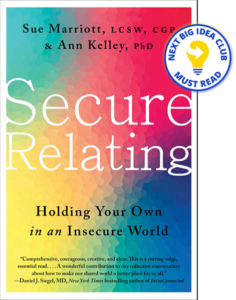Not your ordinary journaling… a science-backed technique that gets to the heart of bottom-up healing.
 You may have heard about this protocol on the Huberman Lab Podcast. Co-hosts Ann and Sue discuss the power of expressive writing as a tool for physical and emotional healing directly with the original researcher, Dr. James Pennebaker. While his protocol is not a simple “elixir” to cure mental or physical illness, Dr. Pennebaker has dedicated years of research and found this kind of expressive writing to be an effective method of healing for many people. Writing without boundaries or expectations can allow us to enter a stream of consciousness and better process our feelings and experiences of trauma.
You may have heard about this protocol on the Huberman Lab Podcast. Co-hosts Ann and Sue discuss the power of expressive writing as a tool for physical and emotional healing directly with the original researcher, Dr. James Pennebaker. While his protocol is not a simple “elixir” to cure mental or physical illness, Dr. Pennebaker has dedicated years of research and found this kind of expressive writing to be an effective method of healing for many people. Writing without boundaries or expectations can allow us to enter a stream of consciousness and better process our feelings and experiences of trauma.
About our Guest – Dr. James Pennebaker
 James W. Pennebaker is Professor Emeritus of Psychology. He is continuing to explore natural language use, group dynamics, and personality in both laboratory and real world settings. His earlier work on expressive writing found that physical health and work performance can improve by simple writing and/or talking exercises. His cross-disciplinary research is related to linguistics, clinical and cognitive psychology, communications, medicine, and computer science. Author or editor of 12 books and over 300 articles, Pennebaker has received numerous research and teaching awards and honors.
James W. Pennebaker is Professor Emeritus of Psychology. He is continuing to explore natural language use, group dynamics, and personality in both laboratory and real world settings. His earlier work on expressive writing found that physical health and work performance can improve by simple writing and/or talking exercises. His cross-disciplinary research is related to linguistics, clinical and cognitive psychology, communications, medicine, and computer science. Author or editor of 12 books and over 300 articles, Pennebaker has received numerous research and teaching awards and honors.
Time Stamps for Neuroscience-proven Expressive Writing Protocol
00:49 – Dr. Pennebaker’s background
3:31 – Secrets are unhealthy
12:45 – Interesting findings from his writing experiment
17:46 – Dr. Pennebaker’s blood draw study
21:35 – One of the big problems with expressive writing
25:52 – Understanding executive function and working memory
27:31 – Three of the most impactful psychological tools
33:37 – The difference between standard journaling and these writing exercises
38:40 – The benefits of open-ended questions
46:16 – The emergent process of writing
59:03 – Anecdote about how Dr. Pennebaker’s analysis contributed to an exoneration
1:02 – What language can tell us about political leadership
Resources for today’s episode – Expressive Writing Protocol
The Pennebaker Lanuage Lab
Linguistic Inquiry & Word Count – Text analysis tools
Publications – A list of Dr. Pennebaker’s publications
Website – Dr. Pennebaker’s UT website and information
Transcripts for A Neuroscience-Proven Expressive Writing Protocol with Dr. James Pennebaker (225)
And of course, our book is also a great resource – it’s for professionals and life-long learners of all kinds. If you’ve read it we’d love to hear from you and if you support it, PLEASE leave a review on either Amazon or Goodreads. Tk you!!


Please consider giving to Mental Health Liberation
We support mental health access to those traditionally left out of mainstream healthcare and use a portion of the income we receive from corporate sponsors to do just that! We can only do that with the help of our Patrons – joining as a TU Neuronerd Podsquad premium subscriber, you support this mission and get a dedicated ad-free feed plus occasional very cool and unique study opportunities, reading groups, and unique surprises! We invite you to join our community. Click here to join!
Mental Health Liberation is our primary partner at this time – please consider giving whatever you can to support mental health access for those traditionally left behind and support training for BIPOC therapists.
We support mental health access to those traditionally left out of mainstream healthcare and use a portion of the income we receive from corporate sponsors to do just that! We can only do that with the help of our Patrons – joining as a TU Neuronerd Podsquad premium subscriber, you support this mission and get a dedicated ad-free feed plus occasional very cool and unique study opportunities, reading groups and who knows what else may come! We invite you to join our community. Click here to join!

 Therapist Uncensored Podcast
Therapist Uncensored Podcast 

 You may have heard about this protocol on the Huberman Lab Podcast. Co-hosts Ann and Sue discuss the power of expressive writing as a tool for physical and emotional healing directly with the original researcher, Dr. James Pennebaker. While his protocol is not a simple “elixir” to cure mental or physical illness, Dr. Pennebaker has dedicated years of research and found this kind of expressive writing to be an effective method of healing for many people. Writing without boundaries or expectations can allow us to enter a stream of consciousness and better process our feelings and experiences of trauma.
You may have heard about this protocol on the Huberman Lab Podcast. Co-hosts Ann and Sue discuss the power of expressive writing as a tool for physical and emotional healing directly with the original researcher, Dr. James Pennebaker. While his protocol is not a simple “elixir” to cure mental or physical illness, Dr. Pennebaker has dedicated years of research and found this kind of expressive writing to be an effective method of healing for many people. Writing without boundaries or expectations can allow us to enter a stream of consciousness and better process our feelings and experiences of trauma. James W. Pennebaker is Professor Emeritus of Psychology. He is continuing to explore natural language use, group dynamics, and personality in both laboratory and real world settings. His earlier work on expressive writing found that physical health and work performance can improve by simple writing and/or talking exercises. His cross-disciplinary research is related to linguistics, clinical and cognitive psychology, communications, medicine, and computer science. Author or editor of 12 books and over 300 articles, Pennebaker has received numerous research and teaching awards and honors.
James W. Pennebaker is Professor Emeritus of Psychology. He is continuing to explore natural language use, group dynamics, and personality in both laboratory and real world settings. His earlier work on expressive writing found that physical health and work performance can improve by simple writing and/or talking exercises. His cross-disciplinary research is related to linguistics, clinical and cognitive psychology, communications, medicine, and computer science. Author or editor of 12 books and over 300 articles, Pennebaker has received numerous research and teaching awards and honors.
